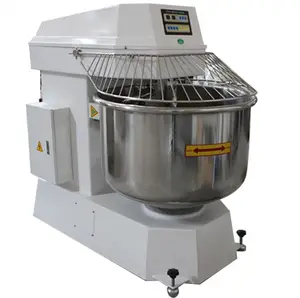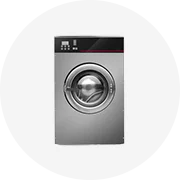The popularity of a commercial dough mixer in both commercial and home kitchens underlines its importance in food preparation. This essential kitchen appliance is critical for those who value efficiency in baking and cooking. It is important to understand the different types and applications of dough mixers, as well as their key features and the materials they are made from.
Types of commercial dough mixers
When it comes to the types of commercial dough mixers, they can be broadly categorized into two groups: spiral mixer commercial and industrial dough mixer machine. A spiral mixer is designed to gently mix dough through the spinning of a spiral-shaped agitator while the mixing bowl remains stationary. This type of mixer is ideal for the preparation of a large amount of dough, like for pizza or bread. On the other hand, an industrial dough mixer machine is designed for large-scale food production. It is capable of handling a high volume of ingredients and can operate continuously for long periods of time.
Applications and features of commercial dough mixers
The applications of a commercial dough mixer are wide-ranging. For instance, a pizza dough mixer commercial is used in pizza shops or any establishment that frequently prepares pizzas, while a restaurant dough mixer is commonly found in restaurants that have a wide-ranging menu that includes bread, pastries, and other baked goods. An industrial dough mixer is often used in large bakeries or food production facilities, where the production capacity is high.
The features of a commercial dough mixer are what make it an invaluable addition to any kitchen, whether it's a commercial or home setting. These machines are designed to handle the labor-intensive process of dough kneading, making them a time and labor-saving device. They are also equipped with different speed settings, allowing the operator to control the kneading process according to the recipe's requirements. Some models also come with a dough hook, whisk, and flat beater, making them versatile pieces of kitchen equipment.
Materials used in commercial dough mixers
In terms of the materials used, some commercial dough mixers are made of stainless steel. This is because stainless steel is known for its durability and resistance to rust, making it ideal for a machine that is frequently exposed to water and dough. The mixing bowls and attachments are also usually made of stainless steel for the same reasons. However, some models may incorporate other materials such as plastic or aluminum, especially for the outer casing or the control knobs.
To sum up, a commercial dough mixer is a must-have piece of equipment for any kitchen. Whether it's a used commercial dough mixer or a brand new one, the advantages that it brings to the table are undeniable. Its ability to handle large quantities of dough, coupled with its efficiency and versatility, makes it a worthy investment.







































 浙公网安备 33010002000092号
浙公网安备 33010002000092号 浙B2-20120091-4
浙B2-20120091-4